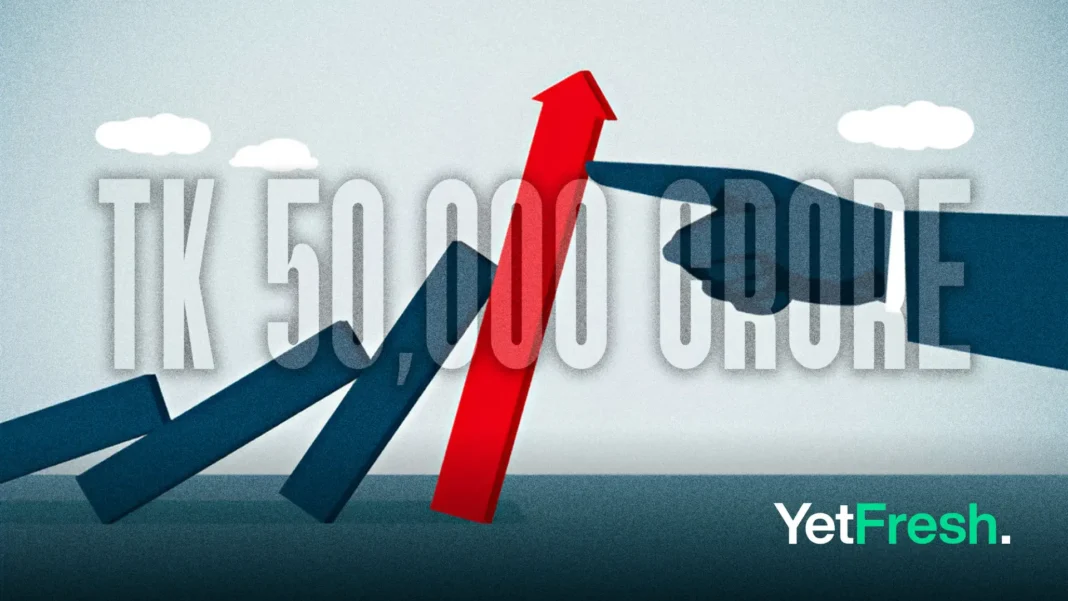Summary:
- Bangladesh’s FY2024-25 budget may be reduced by over Tk 50,000 crore, primarily cutting the Annual Development Programme (ADP) allocation due to slowed project implementation and political instability.
- Rising interest payments and subsidy arrears in power, energy, and fertilizer sectors are increasing pressure on the revenue budget.
- The IMF may impose conditions, including clearing arrears, for Bangladesh to secure $6 billion in loan commitments from development partners.
- Experts emphasize prioritizing essential projects and addressing inefficiencies while avoiding cuts to operating budgets to stabilize the economy.
Bangladesh’s national budget for the fiscal year 2024-25 is poised for a significant revision, with a proposed reduction exceeding Tk 50,000 crore. This adjustment, primarily targeting the Annual Development Programme (ADP), reflects the government’s cautious approach amid political instability, revenue challenges, and external financial pressures.
The original budget, approved in June 2024, was set at Tk 797,000 crore, with Tk 265,000 crore allocated for the ADP. However, preliminary estimates suggest that the revised budget may shrink to Tk 747,000 crore, reducing the ADP allocation to Tk 216,000 crore. The final figures are expected to be determined by March or April 2025.
The decision to scale back development spending stems from multiple factors. Political instability and a change in government have slowed project implementation, with ADP execution falling by 31% year-on-year in the first four months of FY2024-25. Contractors fleeing projects initiated under the previous administration and a reevaluation of non-essential or politically motivated projects have further delayed progress. Consequently, the interim government has adopted a more restrained spending strategy.
In addition to development cuts, rising interest payments and subsidies are exerting pressure on the revenue budget. Interest payments have surged by 92% year-on-year in the first quarter of FY2024-25, with Tk 42,388 crore already spent out of an allocated Tk 113,500 crore. Similarly, subsidy expenditures are climbing due to arrears in key sectors such as power, energy, and fertilizer. As of June 2024, these arrears amounted to approximately Tk 60,000 crore.
The International Monetary Fund (IMF) may play a pivotal role in shaping the revised budget. Bangladesh is seeking $6 billion in loan commitments from multilateral and development partners by June 2025. However, the IMF is likely to impose conditions for disbursing fresh loans, including clearing a substantial portion of subsidy arrears and implementing structural reforms in revenue collection and fiscal management.
Economic analysts suggest that these revisions are part of broader efforts to stabilize Bangladesh’s economy amid mounting challenges. Selim Raihan, Executive Director of the South Asian Network on Economic Modeling (SANEM), highlighted that reduced expenditure could help control inflation but warned against cutting essential operating budgets due to rising debt servicing costs. He emphasized the need for prioritizing key projects and addressing inefficiencies inherited from previous administrations.
The adjustments come at a time when Bangladesh’s economic growth is slowing. The United Nations and other institutions project GDP growth rates between 5.6% and 6.1% for FY2023-24—down from earlier targets—amid global economic headwinds and domestic constraints.
While the potential loans from development partners may provide some fiscal relief, experts stress aligning these funds with national development priorities and implementing mid-term plans to ensure sustainable economic recovery. The revised budget will serve as a critical test of the government’s ability to balance fiscal discipline with developmental needs in challenging times.
Source: The Daily Star




